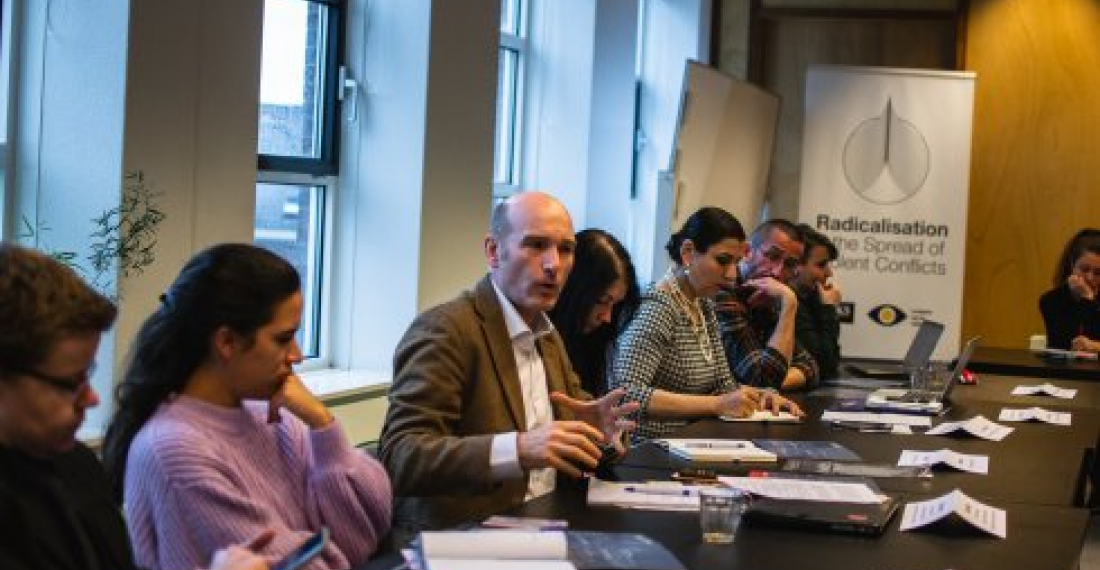A round table meeting with the participation of experts in the field of radicalisation and violent extremism from Europe and the Middle East was held in The Hague on Thursday, 28 November 2019 to discuss the global proliferation of radical ideologies leading to violence.
The event was organised by LINKS Europe in association with the website and intellectual hub European Eye on Radicalization.
Participants included war and terrorism journalists; academics specialising in identity, extremism, security, and human rights; human security and conflict mediation experts; policy advisors and practitioners; and religious scholars. The meeting opened with a keynote address by Renske van der Veer, Director of the International Centre for Counter-Terrorism, after which there were three panel discussions, addressing the extent of the problem and similarities and differences between radicalisation's different forms; the role of civil society in countering extremism; and the role of international organisations and the international community. Participants emphasised the importance of building bridges between European and Middle Eastern perspectives on radicalisation in order to construct more effective strategies to counter and prevent violent extremism (C/PVE).
On the same day, the 4th event in the series The Hague Conversations on Conflict addressed the theme "Radicalisation, Extremism and Conflicts" and was organised in collaboration with the website and hub European Eye on Radicalisation. The panel consisted of Amanda Paul, a Senior Analyst at the European Policy Centre in Brussels, and co-editor of the book ‘Guns, Glory, Criminality, Imprisonment, and Jihadi Extremism in Europe'; Kamel Al-Khatti, a Saudi writer and researcher, specialising in studies of leftist and nationalist movements and parties in the Arabian Peninsula, and an Associate Fellow at the King Faisal Centre for Research and Islamic Studies; and Jonne Catshoek, Founder and Director of Elva Community Engagement, a civil-society organisation, currently very involved and active in West Africa.
The Hague Conversations on Conflict are a series of discussions, lectures, workshops and networking events launched by LINKS Europe in association with The Hague Humanity Hub, in June 2019. Their aim is to provide a forum where the changing nature of war and conflict can be analysed and assessed, together with the responses of international society.
You can read or download a pdf summary of proceedings at the round table and a transcript of the public event here







